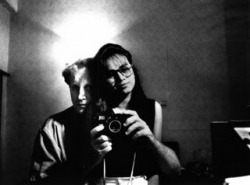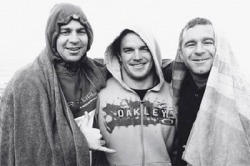The Good Woman Of Bangkok (1991) – Dennis O’Rourke
This week I thought the debate in class was a really great thought provoker, being placed on the ‘against’ side for if a documentary should be educating and truthful, it made me think from a different perspective as to if I were to just answer the question. The couple of points that intrigued me the most was the notion of ‘truth’ and that in our defence, we ran with the postmodern theory that really, there is no one truth, everything has a bias, and argument, is pushing some sort of motive or purpose. As well as the other team’s assumption that audiences take what documentaries say as the complete and utter truth. There must always be questioning, one must always question what is given to them, what they see and hear because everything is never as it seems. In terms of society, it scares me a little to think that people have the perception that documentaries are the utter truth and even worse, that current affairs television shows fall under the same biblical category. Our key point for the debate was that the documentary is an argument, like Greg explored in the lecture, the filmmaker is inevitably presenting a view on a topic, that virtually, nothing can be objective. Objectivity and subjectivity are quite dense subjects and the themes can turn quite philosophical quite quickly. So here I would like to move into the issue of my own personal documentary viewing pattern, or lack thereof. Out of the list Greg placed up in the lecture of recent Australian documentaries, Antarctica (1996) IMAX, Africa’s Elephant Kingdom (1998) IMAX, Bra Boys (2007), Australia: Land Beyond Time (2003) IMAX, Sydney: A Story Of A City (1999) IMAX, Cane Toads (1988), Unfolding Florence, Forbidden Lies, Sacred Sex and God On My Side, I had only seen one, and no prizes guessing which one.
I thoroughly enjoyed Bra Boys precisely for the reason that it presents a differing perspective to that which the media pumps out. Having always been heavily criticised continuously throughout the media (and I’m not saying it wasn’t justified), just in dialect at the most primitive level (the use of the word ‘gang’ by the media and ‘brotherhood’ by boys themselves) but also even just the selection of stories to tell. One of the things that got me the most about the documentary was that I was never aware of how successful the Abberton brothers were in surfing on the international circuit. I had never heard one positive thing about them through the mainstream news, which is why I think it illustrates why documentary holds such great value for society. As long as you are aware that the filmmaker created it, and know it is therefore from their point of view, there should be no problem in interpreting the message, to prove the point. It is so significant, if only because we can hear their point of view, because that was the only way they were going to get people to listen, tell their story themselves.
I thoroughly enjoyed Bra Boys precisely for the reason that it presents a differing perspective to that which the media pumps out. Having always been heavily criticised continuously throughout the media (and I’m not saying it wasn’t justified), just in dialect at the most primitive level (the use of the word ‘gang’ by the media and ‘brotherhood’ by boys themselves) but also even just the selection of stories to tell. One of the things that got me the most about the documentary was that I was never aware of how successful the Abberton brothers were in surfing on the international circuit. I had never heard one positive thing about them through the mainstream news, which is why I think it illustrates why documentary holds such great value for society. As long as you are aware that the filmmaker created it, and know it is therefore from their point of view, there should be no problem in interpreting the message, to prove the point. It is so significant, if only because we can hear their point of view, because that was the only way they were going to get people to listen, tell their story themselves.


 RSS Feed
RSS Feed